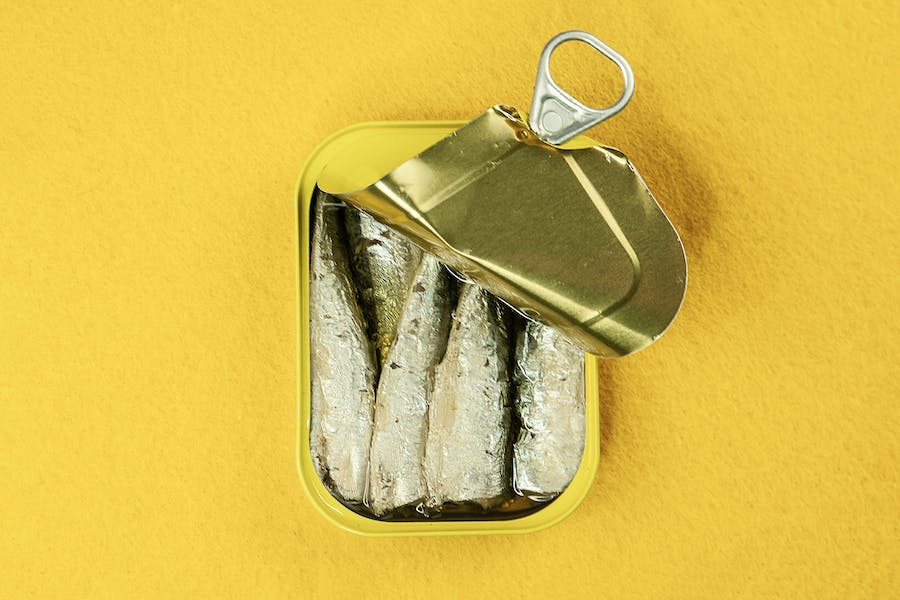The consumption of sardines has gained significant attention in recent years due to their reputation as a nutritional powerhouse. These small, oily fish are packed with essential nutrients, making them a popular choice for health-conscious individuals. But what happens if you eat sardines every day? In this article, we delve into the potential benefits and considerations of making sardines a daily dietary staple. We’ll explore their impressive nutritional profile, discuss the positive impacts on heart and brain health, examine potential risks, and provide practical tips on incorporating sardines into your daily meals. Whether you’re a sardine enthusiast or considering adding them to your diet, read on to discover the effects and implications of this dietary choice.
What Happens If You Eat Sardines Every Day?
Eating sardines every day can offer several health benefits, such as improved heart and brain health, weight management, and bone health due to their rich nutritional profile. However, it’s important to consider potential risks, like mercury content and allergies. It’s advisable to consult with a healthcare professional and follow safe consumption guidelines for a balanced and sustainable diet.
Potential Benefits Of Eating Sardines Daily
- Heart Health: Sardines are rich in omega-3 fatty acids, which can help reduce the risk of heart disease by lowering blood pressure, triglyceride levels, and inflammation. They may also improve cholesterol profiles.
- Brain Function: The omega-3 fatty acids in sardines are crucial for brain health and cognitive function. Regular consumption may support memory, concentration, and mood regulation.
- Weight Management: Sardines are high in protein and low in calories, making them a satiating food choice. Including sardines in your diet can help control appetite and support weight loss or maintenance.
- Bone Health: Sardines are an excellent source of calcium and vitamin D, both vital for maintaining strong bones. Regular consumption can contribute to bone density and reduce the risk of osteoporosis.
- Nutrient Density: Sardines are packed with essential nutrients, including vitamin B12, selenium, and protein, which are important for overall health and well-being.
- Inflammation Reduction: The omega-3 fatty acids in sardines have anti-inflammatory properties, potentially helping with conditions like arthritis and inflammatory diseases.
- Vision Support: Sardines contain essential nutrients like vitamin A and omega-3s that can support eye health and reduce the risk of age-related macular degeneration.
- Skin And Hair: The nutrients in sardines, including omega-3s and protein, can contribute to healthy skin and hair.
How To Incorporate Sardines Into Your Daily Diet?
Incorporating sardines into your daily diet can be delicious and nutritious. Here are some tips and ideas on how to do so:
- Canned Sardines: Canned sardines are convenient and versatile. You can eat them straight from the can or incorporate them into various dishes.
- Sardine Salad: Make a sardine salad by mixing canned sardines with fresh vegetables like lettuce, tomatoes, cucumbers, and your favorite dressing. It’s a quick and healthy meal.
- Sardine Sandwich: Create a sardine sandwich by spreading canned sardines on whole-grain bread or a roll. Add lettuce, onions, and a squeeze of lemon juice for extra flavor.
- Sardine Pasta: Toss cooked pasta with sardines, olive oil, garlic, chili flakes, and some grated Parmesan cheese for a simple and satisfying pasta dish.
- Sardine Pizza: Top your homemade pizza with sardines along with other favorite toppings like olives, onions, and bell peppers.
- Sardine Omelette: Incorporate sardines into your morning routine by adding them to an omelet or scrambled eggs along with vegetables and herbs.
- Sardine Rice Bowl: Make a sardine rice bowl by mixing cooked rice with sardines, soy sauce, sesame seeds, and steamed vegetables.
- Sardine Tacos: Create sardine tacos by filling soft corn tortillas with sardines, coleslaw, avocado, and salsa for a tasty and healthy taco night.
- Sardine Spread: Mash canned sardines with Greek yogurt or cream cheese and add herbs and spices to create a flavorful sardine spread for crackers or toast.
- Sardine Sushi: Make sushi rolls with sardines, avocado, cucumber, and rice. It’s a unique twist on traditional sushi.
Risks And Considerations
- Mercury Content: Sardines are generally low in mercury compared to larger fish like tuna or swordfish. However, some sardine species may contain trace amounts. Pregnant women, nursing mothers, and young children should be cautious and limit their consumption to avoid potential mercury exposure. It’s essential to choose sustainably sourced sardines, as these are often lower in mercury.
- Allergic Reactions: Like any seafood, sardines can trigger allergic reactions in some individuals. If you have a known seafood allergy or experience symptoms such as hives, itching, swelling, or difficulty breathing after consuming sardines, seek immediate medical attention.
- Sustainability: Sardines are often caught using sustainable fishing methods. To minimize the impact on the environment, choose sardine products labeled with sustainability certifications such as MSC (Marine Stewardship Council) or look for information from responsible brands committed to sustainable sourcing.
- Sardine Oil Supplements: Some people opt for sardine oil supplements as a source of omega-3 fatty acids. It’s crucial to follow the recommended dosage and consult with a healthcare professional before starting any dietary supplement regimen.
- Personal Dietary Preferences: Consider your dietary preferences and restrictions. If you follow a vegetarian or vegan diet, sardines may not align with your choices.
- Flavor And Texture: Sardines have a distinct flavor and texture that not everyone may enjoy. If you’re new to sardines, try different preparation methods and recipes to find a style that suits your taste.
- Storage And Freshness: If you’re using fresh sardines, ensure they are fresh and properly stored to avoid foodborne illness. Canned sardines have a longer shelf life, but it’s essential to check for any signs of spoilage before consumption.
- Balanced Diet: While sardines offer many health benefits, it’s important not to rely solely on them for all your nutritional needs. A balanced diet that includes a variety of foods is key to overall health.
Conclusion
In conclusion, incorporating sardines into your daily diet can offer a range of health benefits, including improved heart and brain health, weight management, and bone health. However, it’s essential to be mindful of potential risks, such as mercury content and allergies, and to choose sustainably sourced options. Sardines can be a valuable addition to a balanced diet, but they should be part of a diverse array of foods. Consulting with a healthcare professional for personalized advice will help you make the best choices for your overall well-being.
FAQ’s
Are Sardines High In Omega-3 Fatty Acids?
Yes, sardines are an excellent source of omega-3 fatty acids, which are beneficial for heart and brain health.
Do Sardines Contain A Lot Of Mercury?
Sardines typically have low mercury levels compared to larger fish, making them a safer seafood choice.
Can I Eat Sardines If I Have A Seafood Allergy?
Individuals with seafood allergies should avoid sardines and all other seafood to prevent allergic reactions.
How Should I Store Canned Sardines?
Store canned sardines in a cool, dry place, and check the expiration date for freshness.
Can I Get Enough Calcium From Sardines For Bone Health?
Sardines are a good source of calcium, but it’s essential to incorporate other calcium-rich foods into your diet for comprehensive bone health.








